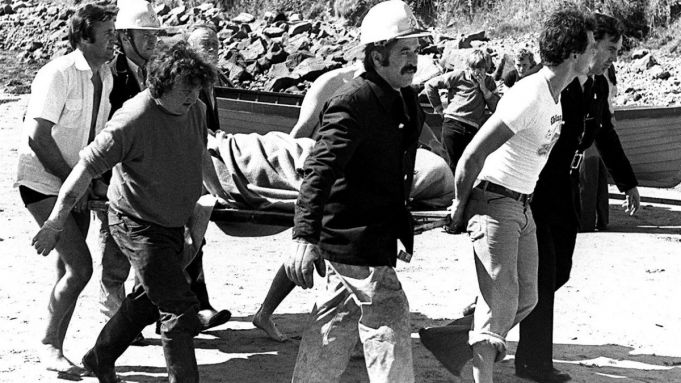Sinn Féin has apologized for the murder of Lord Mountbatten
The president of Sinn Féin has apologized for the murder of Lord Mountbatten at the hands of the IRA.
It is the first time such an explicit apology has come from a leader of the party that has long been the political showcase of the Northern Irish paramilitary group. The apology came on the heels of the funeral of Prince Philip, who was Lord Mountbatten's nephew. Mary Lou McDonald, leader of the Sinn Féin political party, apologized for the "heartbreaking" attack.
Lord Mountbatten, the last viceroy of India, who was very close to the prince and his son Charles, was assassinated at the height of the conflict in Northern Ireland between Republicans and Unionists: his fishing boat was blown up in the village of Mullaghmore, County Sligo, while he was vacationing at his summer residence, Classiebawn Castle.
"Of course I regret what happened. It was heartbreaking," said Mary Lou McDonald, interviewed on Times Radio. Before her, Gerry Adams, who led Sinn Féin until 2018, had always been careful not to say he was sorry. He had expressed regret but insisted that Lord Mountbatten "knew the dangers" of going as far as Ireland.
The Attack

On board the Shadow V, destroyed in the attack by the IRA, was Lord Mountabatten, the twin sons of Louis' daughter, Patricia, her husband John Knatchbull and the mother of the latter, a lady of just over eighty years. A local boy who, served as sailor and cabin boy on board, Paul Maxwell completed the crew. In addition to Lord Mountbatten, his nephew Nicholas and the young cabin boy died in the strike. The following day the elderly Baroness Brabourne also died of her wounds.
The explosives had been placed the night before by a commando of the Provisional Irish Republican Army. That same day the IRA claimed "the execution" and in Warrenpoint, in the county of Down, two additional bombs exploded, at approximately a half- hour distance between them, killing eighteen British soldiers.
Prince Charles was fishing in Iceland that day. "There was not a thing for which Charles did not consult Mountbatten,” writes the biographer Nicholas Davies, “Shocked and destroyed by grief, knowing the news, he went away in solitude, for a walk. A friend found him sitting in front of a fjord, sobbing like a child. Never before had he suffered such a serious emotional loss. At the funeral, he said, ‘Without the heroism of people like Lord Mountbatten, this country and many others like it might still be subject to foreign power, deprived of the freedom we take for granted today. Perhaps the manner in which he died will serve to make us aware of the vulnerabilities of civilized peoples who have chosen to live in democracy to extremisms that have nothing human about them.’"











